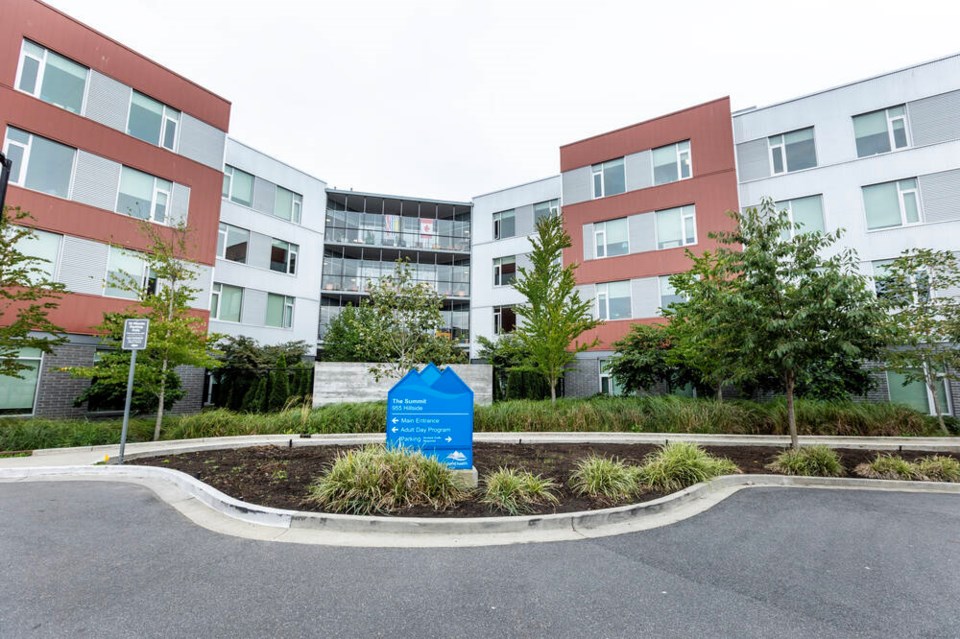The B.C. Nurses’ Union is calling on Island Health for immediate action at two long-term care homes where nurses report a hard-to-house population with complex medical and mental health issues is causing safety risks for staff and residents.
“This can’t just wait until they build a new facility; we call on Island Health to do something now,” said BCNU president Adriane Gear.
The union president said she reached out to Island Health on Tuesday after returning from vacation to read that staff at Dufferin Place in Nanaimo are struggling to deal with a small group of violent or psychotic younger patients — some using drugs or alcohol.
“I asked for a meeting to better understand what steps is [Island Health] going to take now to ensure the safety of not only my members, but all workers and those other residents,” said Gear.
Last week a registered nurse for almost 40 years, backed by another worker, told the Times Colonist a segregated “special population unit” at Dufferin Place operates more like a glorified homeless shelter with no rules or specialized staffing to deal with “drugs, weapons, alcohol and violence.”
Staff said the residents and their visitors are coming and going at all hours, smoking drugs, having sex, and bullying staff and other residents with threatening and obscene behaviour and language.
“I take this nurse’s word at face value,” said Gear. “I am surprised it’s such an extreme situation and that this is the first that I’m hearing of it.”
About two years ago Island Health created two segregated “special population units” for up to 10 people at Dufferin Place and 12 residents at The Summit in Victoria. The residents, some brain injured for a variety of reasons from car crashes to overdoses, are in need of long-term care.
Island Health said it is poised to issue a request for proposals for a separate facility with 20 to 30 one-bedroom suites in Nanaimo followed by a community engagement process and a request for proposals for a 40-bed facility in Victoria. But it could be a year before doors open.
“That’s great that they’ve identified the need for purpose-built residential facilities to care and support some of these complex residents, but what are they going to do in the meantime?” Gear said in an interview.
The health authority needs to ensure the appropriate services and staff — care providers with specialized training and addiction workers and social workers — are put in place at Dufferin and The Summit until the residents can be moved, she said.
Island Health maintains the special-population units are staffed by a “dedicated team including clinical team leaders, behavioural health clinicians, clinical practice educators, and recreation therapists” and that other residents in the facilities are not adversely affected.
Security was increased this year and staffing has been allocated to manage the increased workload, the health authority said.
Staff are also equipped with special equipment “to protect against exposure to toxic inhalants,” said Island Health. Staff complained they sometimes breathed in the smoke from illicit drugs.
WorkSafeBC said Wednesday it has ongoing inspections at Dufferin but could not immediately provide inspection report results.
>>> To comment on this article, write a letter to the editor: [email protected]




